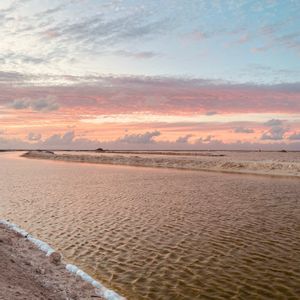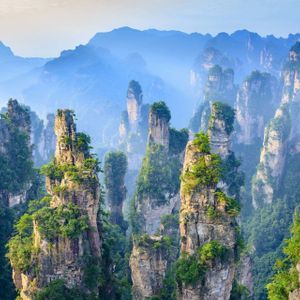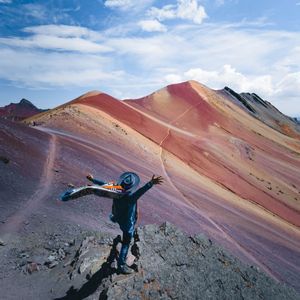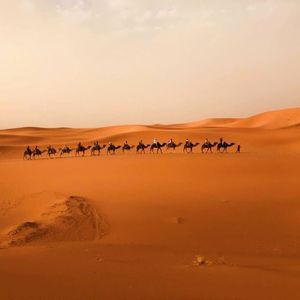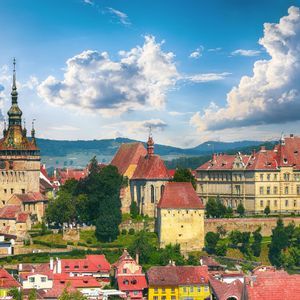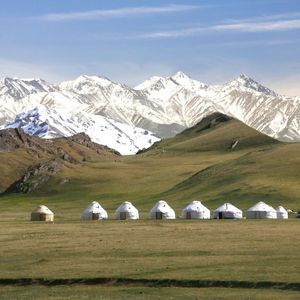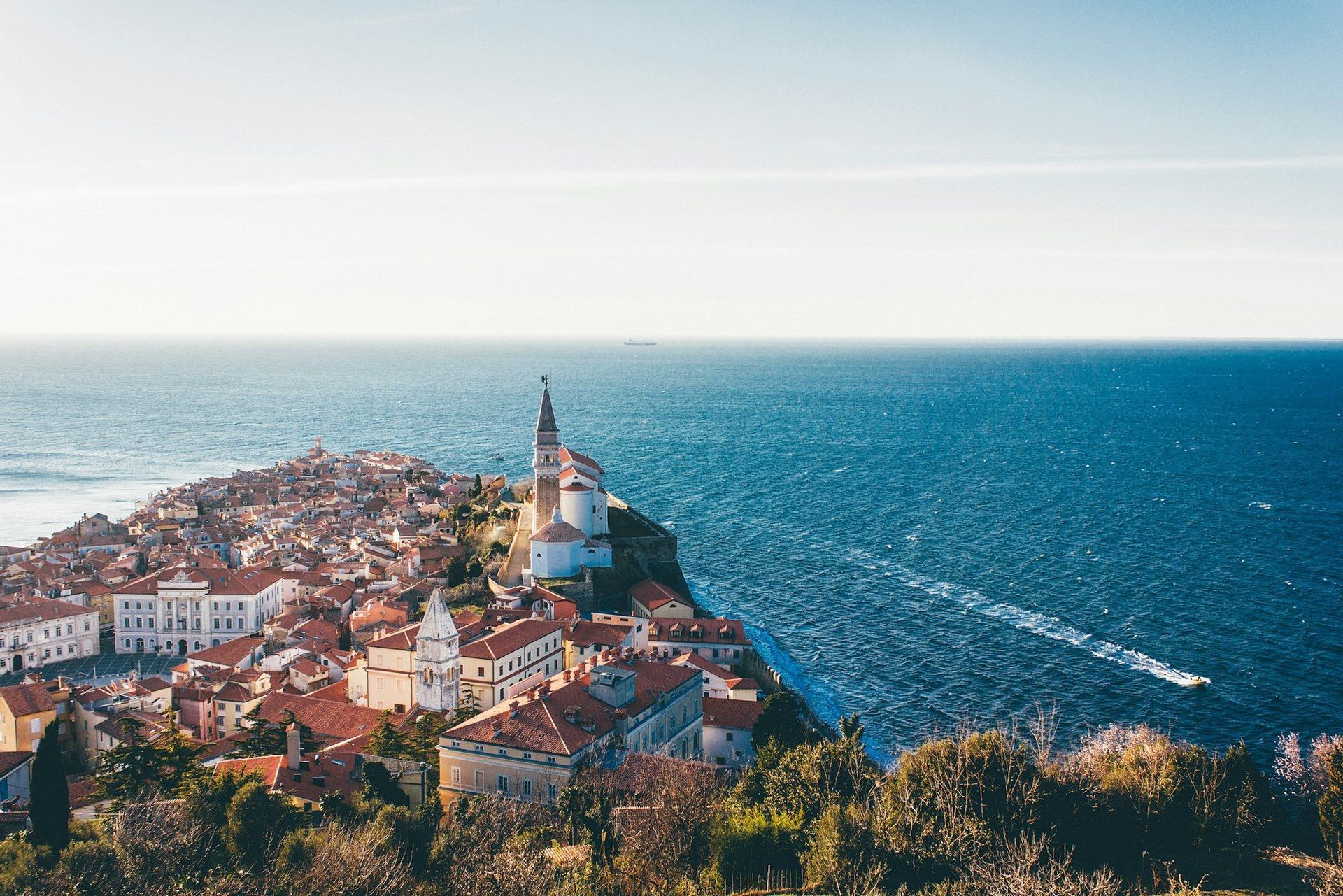
Group trips to Slovenia
Our organized trips to Slovenia
A captivating mosaic where alpine grandeur meets a whisper of the Adriatic, Slovenia is Europe's green heart, rich with unexpected charm and boundless natural splendor. From the fairytale allure of Lake Bled, with its iconic island church nestled in turquoise waters, to the vibrant, green capital of Ljubljana, a city brimming with riverside cafes and architectural marvels by Jože Plečnik, every turn reveals a new delight. Discover the dramatic underground wonders of the Škocjan Caves, a UNESCO World Heritage site, or embark on thrilling adventures through the pristine trails of the Julian Alps within Triglav National Park. This welcoming land invites curious explorers and discerning adventurers to uncover its profound beauty and authentic spirit.
Don’t know where to start? Our best sellers are always a good idea.
FAQs about Slovenia
If you are a UK citizen, to find out the entry requirements for Slovenia, you can check this informational page from our partner Sherpa. If you need a visa, you can apply for it through Sherpa. If you are not a UK citizen, you can still use Sherpa by changing the nationality in the 'Passport' section.
Before traveling, always remember to check the government website of your country of origin for updates on the entry requirements for Slovenia – you wouldn’t want to stay home due to a bureaucratic detail!
- UK residents: review the FCDO Travel Advice.
- US residents: consult the US Department of State Travel Advice.
- Other residents: refer to your government or local consulate's travel advice.
Slovenia is in the Central European Time zone, which is UTC plus 1 hour. If it is 12pm in the UK, it will be 1pm in Slovenia. During daylight saving time, Slovenia observes Central European Summer Time, which is UTC plus 2 hours. So, if it is 12pm in the UK, it will be 2pm there. In the USA, if it is 12pm Eastern Time, it will be 6pm in Slovenia, or 7pm during daylight saving time. Remember to adjust your watches or devices when traveling.
Slovenia uses the Euro as its currency. You can exchange other currencies like GBP, USD, and EUR at banks, exchange offices, or at the airport. The daily exchange rate varies, so it's a good idea to check online or at a local bank for the most accurate rates before you travel.
In Slovenia, you can pay using cash, credit cards, and debit cards. Major credit cards like Visa and MasterCard are widely accepted, especially in larger cities and tourist areas. However, it's a good idea to carry some cash for smaller towns or markets where card payments might not be possible. ATMs are easily found in urban areas for withdrawing euros. Remember to inform your bank before traveling to avoid any issues with your cards.
Tipping in Slovenia is not mandatory, but it is appreciated for good service. In restaurants, rounding up the bill or leaving about 10 percent is a nice gesture. For taxi drivers, you might round up the fare. In hotels, it's thoughtful to give a small tip to porters or housekeeping if you're satisfied with the service. It's always up to you and how you feel about the service you received.
Slovenia is in Europe, so if you're from the EU, you can use your mobile data at no extra cost due to roaming agreements. If you're not from the EU, or you want a local option, you can buy a local SIM card or an e-SIM data plan. Providers like Telekom Slovenije, A1 Slovenia, and Telemach offer data plans that are easy to find in shops or at the airport. Wi-Fi is widely available in Slovenia, especially in cities, hotels, cafes, and restaurants, so you should have no trouble staying connected.
In Slovenia, the official language is Slovene. It's spoken by most of the population, and you might find it helpful to know a few colloquial expressions:
- Hello: Zdravo
- Thank you: Hvala
- Please: Prosim
- Yes: Da
- No: Ne
These basic phrases can help you connect with locals and make your trip more enjoyable!
In Slovenia, you'll need plugs that are Type C and Type F, which are the standard European plugs. The electric tension is 230V and the frequency is 50Hz. If you are coming from a country that uses a different plug type, we recommend you bring a universal adapter to charge your devices without any hassle.
The main religion in Slovenia is Roman Catholicism. Slovenia celebrates several important religious holidays, including:
- Christmas on December 25
- Easter Sunday in spring
- All Saints' Day on November 1
These holidays are widely observed, with many people attending church services and participating in traditional festivities. Remember that during these times, some shops and businesses might have reduced hours or be closed.
Slovenia is a beautiful destination with diverse landscapes, so packing smartly is key. Here's a handy list for your backpack:
-
Clothing:
- Light layers for varying temperatures
- Waterproof jacket for rain
- Swimwear for the lakes and coast
- Warm sweater for cooler evenings
-
Shoes:
- Comfortable walking shoes for city exploration
- Hiking boots for trails
- Sandals for the beach or leisure
-
Accessories and Technology:
- Sunglasses and hat for sun protection
- Universal power adapter
- Portable charger for your devices
- Camera for capturing memories
-
Toiletries and Medication:
- Travel-sized toiletries like shampoo and toothpaste
- Sunscreen with high SPF
- Basic first aid kit
- Common travel medications like pain relievers and motion sickness tablets
Consider the season you're visiting to adjust accordingly, as Slovenia can be chilly in the winter and warm in the summer.
Slovenia's weather can vary quite a bit depending on the region:
- Coastal Area: Mediterranean climate with mild, wet winters and hot, dry summers. Best time to visit is spring and early autumn.
- Central Slovenia, including Ljubljana: Continental climate with warm summers and cold winters. The best time is late spring to early autumn.
- Alpine Region: Alpine climate with cold, snowy winters and mild summers. Best time for winter sports is December to March, and for hiking, it's June to September.
By knowing these regional differences, you can plan your visit according to the activities and weather you prefer.
